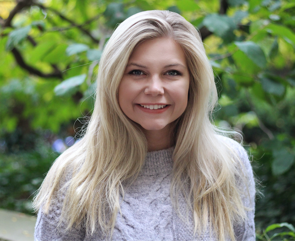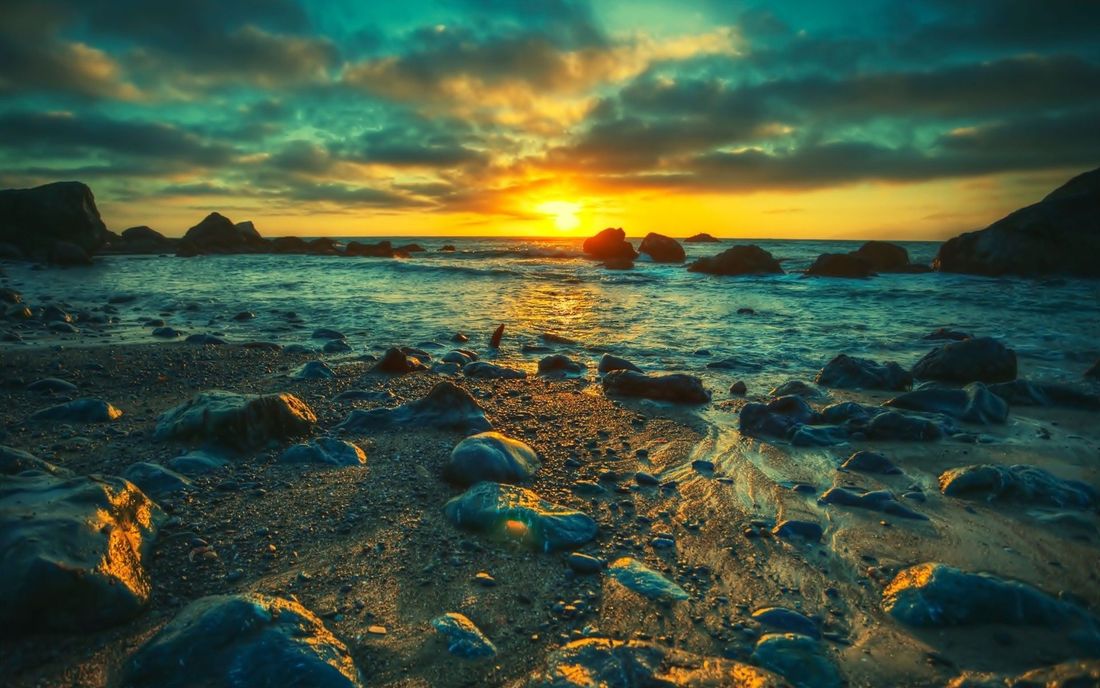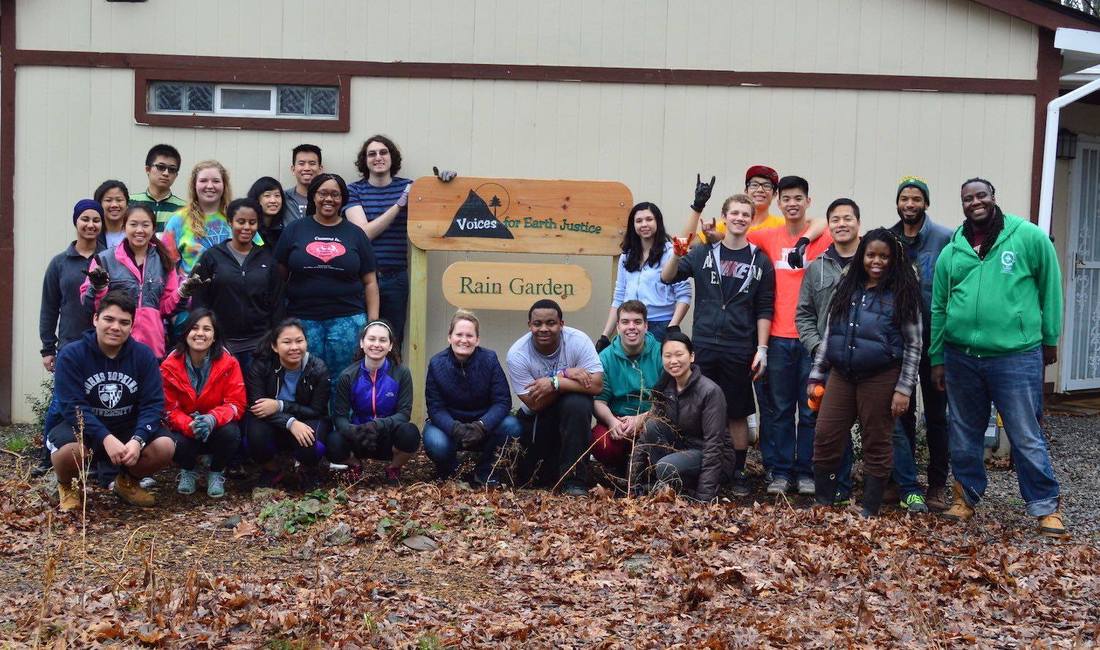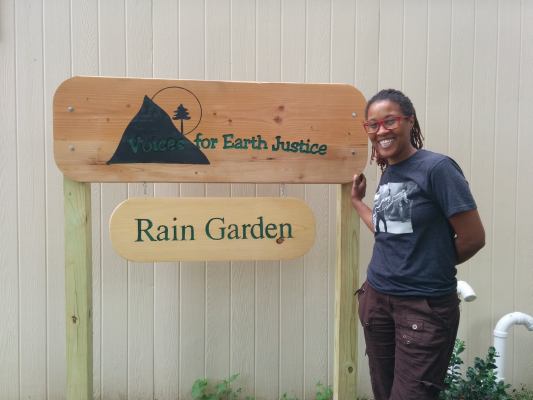|
What you're about to read is a sermon I wrote for Earth Day this year.
Here, at the beginning, please know that:
Scripture readings: At one of the Christian colleges I attended, I wrote a paper against Earth Day. In that paper, I made the case that Earth Day is wrong--a satanic scheme to turn Christians away from God. The kind of people who celebrate Earth Day, I said, are benighted, godless, immoral, and just plain weird. I wrote: "The Bible says the earth will burn up anyways. The only thing that matters is that we live lives of obedience to God. Those who preach the environment seek to lead us astray from what God says is important." What, exactly, did God say is important? At the time, I would say the most important things to God were abstaining from the sins of alcohol, sex, and tobacco and going to the right church. Oddly, it was my struggle with one of those sins--sex--that began to change my mind about Earth Day. I grew up in a Christian culture that made sex feel like a very dirty thing. And so, as a college kid who involuntarily thought of almost nothing but sex, I felt dirty all the time. I was so ashamed of my sexuality, I actually sought out a man who said he could cast the "sex demon" out of me. He failed. I thought about sex just as much after the "exorcism". "It's not a demon," I thought. "It's me! I'm doomed!" I went on living with this shame for several years until Bobby Valentine, a pastor friend of mine, pointed me to a scripture that saved me. "Brad, go read Genesis 1," he said. "Then, come back and tell me: What is the first command God gives human beings in the Bible?" It wasn't hard to find God's first command to human beings. It's right there in Genesis 1:28: "Be fruitful and multiply." Bobby asked me: "You know what that means, Brad? It means God's first command to human beings is to have sex. See? You're made for sex and God expects you to have sex. Why feel dirty about wanting to do something that God commands you to do?" And that did it. From that point on, I no longer felt ashamed of being sexual. But helping me find healthy sexuality was only one of the things reading Genesis 1 did for me; it also changed what I believe about the relationship between God and Earth. As I read Genesis 1, I noticed a refrain repeating over and over again: "And God saw that it was good." What did God see as good? Earth and all therein. I grew up believing God made Earth like Olympic host cities make stadiums: Disposable venues that get used for a short period of time before abandonment or demolition. But Genesis 1 tells a different story. That refrain--"And God saw that it was good"--sings a song about an artist (God) thrilling in his artwork (Earth). The beauty and wonder of it all is getting to him and he is nearly giggling with joy and love. Read Genesis 1 aloud and let the imagery enchant you and the rhythm move you. You can almost hear God's breathless whisper: "Oh, this is good. This is so, so good!" Nothing about Genesis 1 even hints that God is building a disposable venue for human competition. No, he's getting carried away with his creativity and love for it all. It is impossible to really read Genesis 1 and say that Earth does not matter to God. It clearly does. And that brings us back to the sex part. The last thing God makes in Genesis 1 is human beings in his own image. What does that mean? In his own "image"? It means God makes human beings godlike. Everything we see God do in Genesis 1 is something that God gives us the power to do, too. God gives human beings the power to create and imagine. He gives us the power to care, to love, to rejoice. And he gives us Earth--his Earth. As soon as God declares his delight and his love for Earth, he gives it as a gift to the human beings he made in his own image. As he gives the gift, he says: "Prosper! Reproduce! Fill Earth! Take charge! Be responsible for fish in the sea and birds in the air and for every living thing that moves on the face of Earth." In short: Love it the way I love it. Care for it the way I care for it. Enjoy it! Treasure it! To believe Genesis 1 is to believe that this is God's commission to the human race. This was radical the first time I understood it. But it was also such a relief. I grew up in a church where preaching whiffed of burning sulfur. We talked about hell all the time. Our god was foul-tempered and thin-skinned. He was "all business" and enjoyed "throwing the book" at us. Yeah, maybe he made the world, but he forgot about it as soon as humans were on the scene. God was too busy sniffing out 19-year olds who were trying with all their might to not think about sex. Earth was just kindling for the fire that would burn up all the sinners like me. Genesis 1 saved me from that god. What a relief to discover that God is an artist with a soft spot for birds and flowers! What a relief to discover that God thought sex would be a really awesome thing for people to have! What a relief to discover that God doesn't make anything to use once and throw away; he saves everything...including you and me. Thinking about it this way changed Earth Day from a "pagan" day to a sacred day. Jesus Christ himself tells his apprentices that to look into the heart of God, they need to look at nature. Earth Day, then, is not just a day to celebrate and contemplate Earth; it is a day to get to know the heart of God by getting to know God's Earth. Christians like me shouldn't keep Earth Day to be "P.C." or to placate that one aunt who wears Birkenstocks and eats homemade granola. We keep Earth Day because thrilling in the beauty and wonder of Earth is one of the easiest ways to thrill in the heart of God. Earth Day is also a reminder that we as a human race have work to do--divine work that is obedience to God's original command: Love my Earth the way I love it. Care for it the way I care for it. Treat this gift the way a precious gift ought to be treated. If we want to be like God, Earth Day shows us how. If we want to be part of God's life (and want God to be part of our lives), Earth Day shows us how. In a calendar full of religious holidays and observances, few could bring us any closer to knowing who God is and what God is about than Earth Day. "For God so loved the world..." The truth is, for God every day is Earth Day. Shouldn't that be true of us, too? BT Irwin, executive director, Voices for Earth Justice
1 Comment
 Chloe Hypes Chloe Hypes We are pleased to share that the University of Michigan chose Voices for Earth Justice to be part of its Detroit Community-Based Research Program (DCBRP) for Summer 2018. U-M will pay a full-time research intern to work with us from June to August. This summer, Voices for Earth Justice will host research intern Chloe Hypes, a junior environmental science major from Stockbridge, Michigan. Chloe's studies focus on food policy and food sustainability with special emphasis on nutrition access in rural areas. She is on scholarship at U-M, a fact more remarkable because she is also a first-generation college student. She has studied and volunteered in Peru and Tanzania and will spend May in Costa Rica before joining Voices for Earth Justice in June. As part of the Detroit Community-Based Research Program, Chloe will receive local housing and a stipend from U-M. At Voices for Earth Justice, she will work 40 hours per week on two projects:
The questions Chloe will seek to answer are: What Earth-friendly lifestyles or personal habits meet the economic, health, social, or spiritual needs of people in Brightmoor? Are these Earth-friendly lifestyles or personal habits affordable and easy enough that Brightmoor residents will see the benefits and take them up as part of their lives? How many people in Brightmoor are likely to take up these Earth-friendly lifestyles or personal habits? What does Voices for Earth Justice need to do to bring this about over the next few years? In short: What does Everyday Earth Justice look like in Brightmoor? We hope you'll keep Chloe and our neighbors and team in your prayers this summer. We also hope you'll donate, visit, or volunteer as your own Everyday Earth Justice. Grace and peace! Let’s create a Detroit where all residents can save money, have clean walkable neighborhoods, pursue good jobs, and live a healthy lifestyle. The Office of Sustainability is looking to work with engaged and motivated Detroiters to uplift residents’ voices and keep the community connected during the planning phase and beyond.
Sustainability Ambassadors will be advocates for Detroiters, first and foremost. Ambassadors will seek ideas and input from people in their neighborhoods and help us shape an agenda that puts all Detroiters first. The plan will inform how we:
Sustainability Ambassadors are:
 The University of Michigan chose Hope House & Gardens as one site in a large ongoing study of allergenic pollen and its effects on children in Detroit. The study, funded by the National Institute of Health, is being conducted by Dr. Dan Katz, a postdoctoral fellow at U-M's School of Public Health. According to Dr. Katz's website, the study focuses on the "intersection of plant ecology, public health, and aerobiology." At Hope House & Gardens, U-M students will set up and monitor a pollen collection instrument each week during the growing season. Once a week, students will visit the site to record the pollen data the instrument collects. "Partnerships like this one are an important part of what we do," said Voices for Earth Justice executive director BT Irwin. "By giving U-M researchers access to Hope House & Gardens, we're contributing to research that can make a difference in the lives of our neighbors and to Earth." Let's start with some housekeeping.
A month or two ago, I posted that our board is working on new mission and vision statements. We got far enough along that the board was looking at a draft. However, after talking over that draft the board decided to put it on the back burner for now. Why? Well, it's almost spring...and we've got a garden to grow and friends and neighbors to bless, serve, and teach. That's a lot of work for a little organization like Voices for Earth Justice! For now, we are choosing to work with our friends rather than talk about words. That brings me to the point of this post: The work we're going to do with our friends and why that work matters now. One thing I'll share with you from the mission and vision draft we put on hold is this little mantra: Everyday Earth Justice. That little mantra will guide me as I guide Voices for Earth Justice. What does it mean? I take Everyday Earth Justice to mean making Earth justice part of our everyday lives. As habitual a practice as brushing our teeth. It means doing Earth justice wherever we are, with whatever we have, and whomever we're with. It means changing our lives just a little more each day to be a little more just. Truth: Ordinary people changing their everyday lives make a far greater difference than the biggest organizations with the biggest budgets and biggest programs. So, when I think about Voices for Earth Justice, I don't think about how to make it bigger; I think about how we can help more ordinary people make more small changes that add up to a bigger difference in their lives and in our world. Are you with me? So, the question is: How will Voices for Earth Justice help ordinary people practice Everyday Earth Justice? Simple: We ourselves have to do Earth justice wherever we are, with whatever we have, and whomever we're with. Let's look at each of those things: Wherever we are: Voices for Earth Justice has been in Detroit's Brightmoor neighborhood for almost seven years. Whatever we have: Since 2011, we've cared for and cultivated Hope House & Gardens at the corner of Greydale and Puritan streets in Brightmoor. Whomever we're with: We have a small, but passionate core group of donors, friends, neighbors, and volunteers. So, then, Voices for Earth Justice will do Everyday Earth Justice by helping our donors, friends, neighbors, and volunteers celebrate, discover, and practice Everyday Earth Justice together at Hope House & Gardens in Brightmoor. How will we know we're doing this well? To answer that question, I believe we need to find answers to five other questions:
We don't yet have answers to the first two questions. This month, we hired L'Oreal Hawkes-Williams to be our garden program leader. Part of her job will be to help us answer Questions 1 and 2 so we can set some goals for 2018 and 2019. As for Questions 3, 4, and 5, we set this goal: By June 30, 2019, 2,019 people will come to Hope House & Gardens to celebrate, discover, and practice Everyday Earth Justice. At least half (1,010) will be our Brightmoor neighbors. So, in summary, we are setting two "mission goals" we want to accomplish by the end of Summer 2019:
Here's our plan to accomplish these goals:
What do you think? Are you with us? If so, you have an important role to play in all of this. You can join us in practicing and supporting Everyday Earth Justice. Here are three ways you can help today:
Helping 2,019 people--half of them Brightmoor neighbors--celebrate, discover, and practice Everyday Earth Justice at Hope House & Gardens is what we are all about in 2018 and 2019. Are you all about Everyday Earth Justice, too? Join us! We are eager to bless and serve you as you work alongside us. Grace and peace, BT Irwin, executive director L'Oreal Hawkes-Williams, a garden intern at Voices for Earth Justice in 2016 and 2017, will return as garden program leader in 2018.
As garden program leader, Hawkes-Williams will design and direct the master plan for gardens and green space at VEJ's Hope House & Gardens in Detroit. Gardening is the heart of VEJ's campaign to serve and teach 2,019 neighbors, students, and volunteers at Hope House & Gardens by June 2019. "Few people know our garden or our neighbors better than L'Oreal," said VEJ executive director BT Irwin. "She has the experience and know-how to make the garden grow; she has the love and passion to help people grow along with it." This April, Hawkes-Williams will graduate from the University of Michigan with a bachelor's degree emphasizing African American studies and sustainable food systems. She plans to focus her work on promoting and teaching food sovereignty--"the right of peoples to define their own agriculture and food systems and to produce healthy and culturally appropriate food through ecologically sound and sustainable methods" (Food Sovereignty Alliance). VEJ is looking for special volunteers to be trained as garden crew leaders in 2018. Garden crew leaders will learn gardening plans and techniques from Hawkes-Williams and then coach and support groups of volunteers as they work in the garden. Garden crew leaders commit to 4 - 8 hours per month. Click here to sign up as a garden crew leader. Support our 2018 garden program with a gift of money. Your donation will buy supplies and tools and provide support for people like L'Oreal and her team. Click here to make a donation (you may choose to make it in honor of L'Oreal Hawkes-Williams). |
Categories
All
Archives
December 2021
|
Copyright © 2024 Voices for Earth Justice, nonprofit 501(c)(3). All Rights Reserved.
Mailing address: 15894 Greydale Street, Detroit, Michigan 48223 Email: info@voices4earth.org Phone: (313) 355-6042
Mailing address: 15894 Greydale Street, Detroit, Michigan 48223 Email: info@voices4earth.org Phone: (313) 355-6042




 RSS Feed
RSS Feed